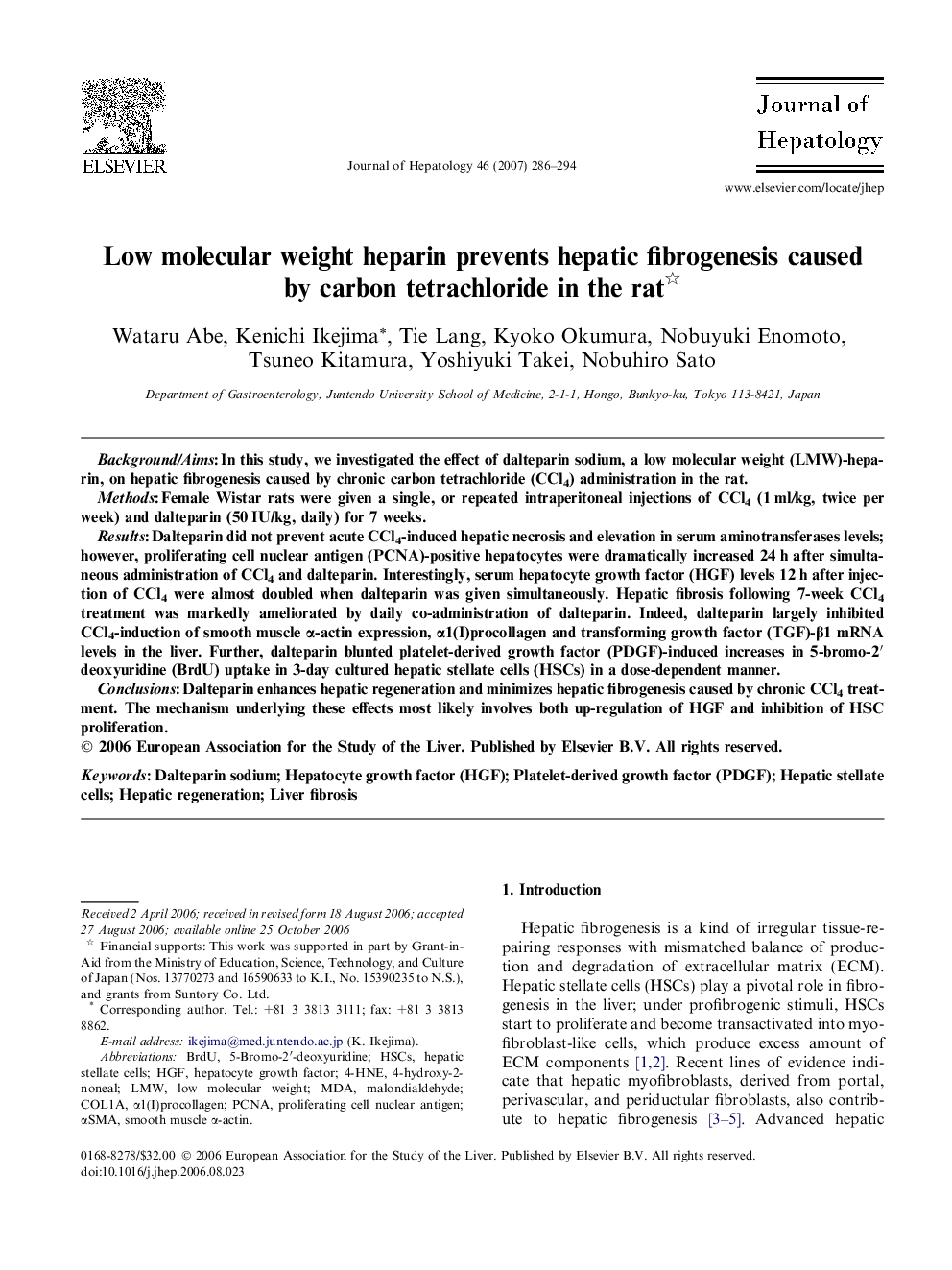| Article ID | Journal | Published Year | Pages | File Type |
|---|---|---|---|---|
| 3315560 | Journal of Hepatology | 2007 | 9 Pages |
Background/AimsIn this study, we investigated the effect of dalteparin sodium, a low molecular weight (LMW)-heparin, on hepatic fibrogenesis caused by chronic carbon tetrachloride (CCl4) administration in the rat.MethodsFemale Wistar rats were given a single, or repeated intraperitoneal injections of CCl4 (1 ml/kg, twice per week) and dalteparin (50 IU/kg, daily) for 7 weeks.ResultsDalteparin did not prevent acute CCl4-induced hepatic necrosis and elevation in serum aminotransferases levels; however, proliferating cell nuclear antigen (PCNA)-positive hepatocytes were dramatically increased 24 h after simultaneous administration of CCl4 and dalteparin. Interestingly, serum hepatocyte growth factor (HGF) levels 12 h after injection of CCl4 were almost doubled when dalteparin was given simultaneously. Hepatic fibrosis following 7-week CCl4 treatment was markedly ameliorated by daily co-administration of dalteparin. Indeed, dalteparin largely inhibited CCl4-induction of smooth muscle α-actin expression, α1(I)procollagen and transforming growth factor (TGF)-β1 mRNA levels in the liver. Further, dalteparin blunted platelet-derived growth factor (PDGF)-induced increases in 5-bromo-2′deoxyuridine (BrdU) uptake in 3-day cultured hepatic stellate cells (HSCs) in a dose-dependent manner.ConclusionsDalteparin enhances hepatic regeneration and minimizes hepatic fibrogenesis caused by chronic CCl4 treatment. The mechanism underlying these effects most likely involves both up-regulation of HGF and inhibition of HSC proliferation.
